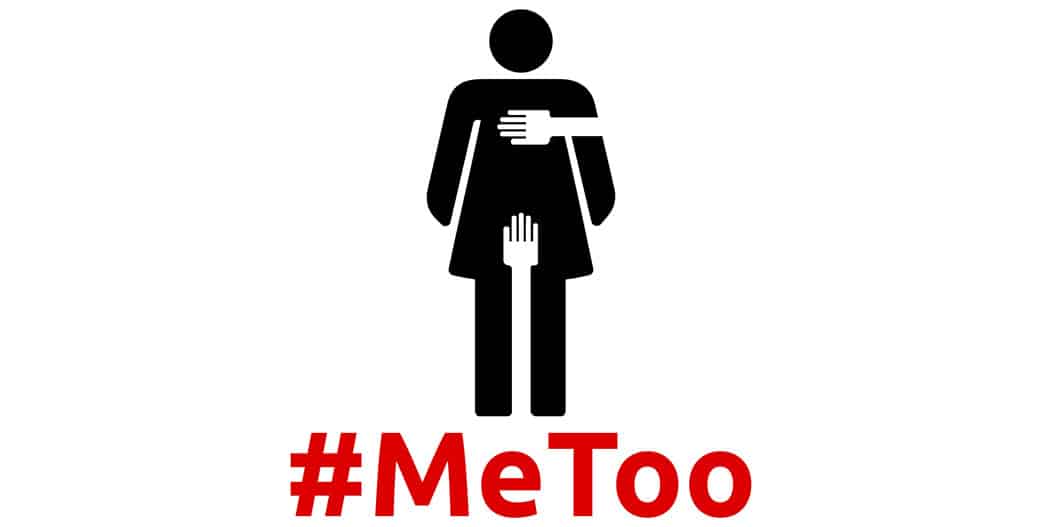Blog
Do Changing Harassment Policies Mean More High-Profile Allegations?

In the wake of the #MeToo movement, dozens of high-profile men in the media and entertainment industries have recently lost their jobs after allegations of sexual harassment.
Here’s a partial list, in case you missed the headlines:
- Matt Lauer was fired from his role as NBC anchor.
- Charlie Rose was fired from his position as anchor for both PBS and CBS.
- John Lasseter, famous for his work at Pixar and Walt Disney Animation Studios, has taken a leave of absence.
- Mark Halperin was fired from his role as news analyst for NBC and MSNBC.
- Al Franken resigned his position as a Minnesota Senator.
Under current laws, an employer is 100 percent liable for sexual harassment in the workplace, so it’s understandable that many companies are scrambling to revise their policies.
After Matt Lauer was fired, NBC made revisions to its sexual harassment policy. Under the new revisions, employees are required to report any activity involving sexual harassment, regardless of whether it happens to them or someone else. If they do not report activity, they can face termination along with the alleged harasser.
The NBC policy revisions include limiting the kind of hug a coworker can give to another. A hug must be quick and immediately released so as to prevent inappropriate body contact.
For a workplace to be protected from liability lawsuits, the employer should have the following policies in place.
- Post and distribute an anti-sexual harassment policy. Communicate it to all workers, and document the communication.
- Train employees on sexual harassment awareness and prevention.
- Designate a person other than a supervisor for safe reporting.
- Implement an anti-retaliation policy for reporting.
- Investigate reports as soon as they are made and make amends to the situation.
Historically, many employees did not report sexual harassment out to fear of losing their jobs, but the recent cultural sea change about this issue indicates that there will be an increasing number of accusations leveled that may incriminate you – even if you don’t believe you did anything wrong. Some individuals may even try to take advantage of the current cultural climate to make false allegations for financial gain or revenge. If you are accused of sexual harassment, you need to know what to do and what not to do.
In this post, we’ll offer guidelines for protecting your rights if you are charged.
Know the laws
Both federal and state laws prohibit sexual harassment in the workplace. This is defined as creating an environment that is hostile, offensive, intimidating, or abusive, or as soliciting sexual favors in exchange for job benefits, or to avoid consequences in the workplace. If the offense involved sexual contact, it can be filed as a criminal case.

Most cases of sexual harassment involve inappropriate joking, viewing pornography at work, unwanted touching, and even demands for sexual favors.
Basically, if the behavior is unwanted and causes reasonable offense, it may qualify as sexual harassment.
Take the charges seriously
Even if you believe you are falsely accused, you need to handle the matter with professionalism. Be very careful what you say and to whom you say it, because whatever you say to other co-workers, the accuser, or the employer can be held against you in court. Keep a close record of all conversations and make sure that you share them only with your attorney.
Realize you may be suspended
It’s normal for companies to investigate claims to protect their interests. As part of the investigatory process, an employer may temporarily suspend you while the investigation is underway.
No one wants to be suspended, but you need to understand that it is part of the process. It is not intended to be a punishment or a sign that your employer is siding with your accuser. The company’s potential legal exposure and its reputation are the primary interests once allegations of sexual harassment are leveled.
Cooperate with the investigation
Even if you are completely innocent, it’s in your best interest to have a cooperative spirit. Among other benefits, going along with the investigation allows you to provide a written account of your side of the story and give your list of witnesses.

Prepare your defenses
If you are innocent, you need to focus on the lack of evidence to support the accuser’s claim. Know that in most cases, a single act is not enough to prove harassment. The accuser will need to present a case of regular offensive behavior for the claim to be valid. Moreover, keep in mind that the accuser must adhere to a strict series of filing requirements for a claim to be processed.
If you are hit with criminal sex charges related to the claim, the prosecutor will have to prove that you exercised intent or the case could be dropped.
Hire an attorney immediately
If you lose your job after being accused, you can hire a knowledgeable Texas sexual harassment attorney to help you recover your losses. Sexual harassment cases are complex and need special attention. Call us today for a free case review, and we will get to work on building you the strongest possible defense.
Take the first step toward protecting your freedom by contacting us now
Testimonials
John T. Floyd is Board Certified in Criminal Law By the Texas Board of Legal Specialization
Request A Confidential Consultation
Fields marked with an * are required
"*" indicates required fields



















